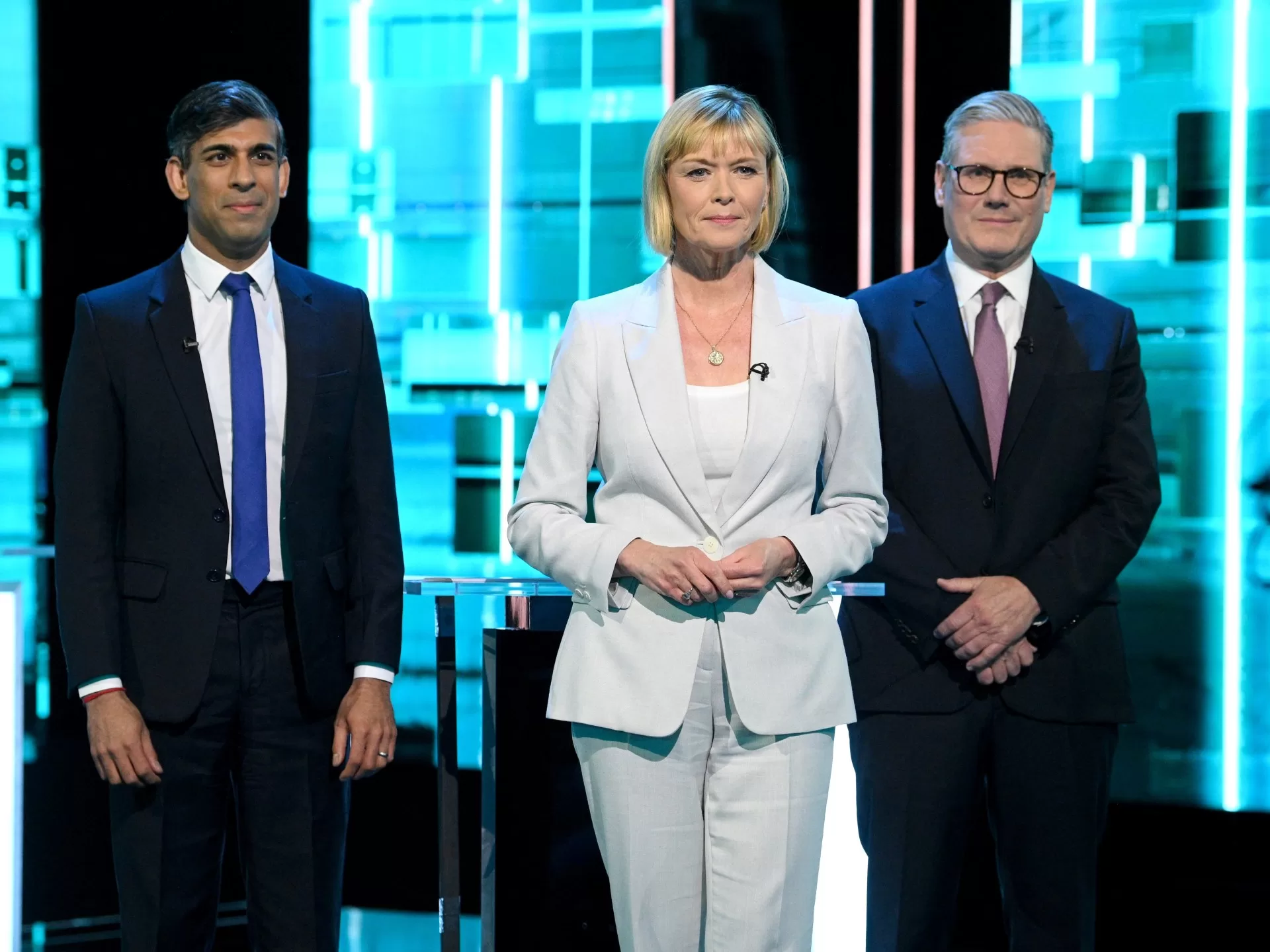The two men clash over tax, health and the cost of living in fractious debate that failed to land any knockout blows.
Conservative Prime Minister Rishi Sunak and Keir Starmer, the leader of the opposition Labour Party, took the floor on Tuesday night in the northwestern town of Salford with a month to go before the July 4 election.
Sunak, whose party is behind by some 20 percentage points in the opinion polls, took a combative approach, lashing out at Labour over tax, noting that inflation had eased to 2 percent and that he had a plan to boost the sluggish economy.
Starmer pointed to the austerity of the Conservatives’ early years in government and the chaos of the more recent past, which saw the removal of then-Prime Minister Boris Johnson amid money and ethics scandals, and the brief but devastating 49-day tenure of Liz Truss, whose tax-cutting plans sent mortgages soaring.
Sunak became party leader and prime minister in October 2022.
The Labour leader said the election was a choice between more “chaos and division” with the Conservatives and “turning the page and rebuilding with Labour”.
Both men were told repeatedly not to speak over each other and asked to lower their voices as they clashed over issues ranging from immigration and education to health, but neither outlined any new plans.
Sunak, a former banker and one of the UK’s richest people, drew groans when he blamed NHS waiting lists on doctor strikes, and was greeted by laughter when he said the numbers were going down “because they were higher” before.
But he seemed to make up some ground with the audience when discussing how he planned to tackle immigration, claiming his controversial plan to send certain asylum seekers to Rwanda was a deterrent.
Starmer said he also had a plan to tackle immigration and that he would consider processing asylum claims in a third country as long as it did not breach international law.
After the debate ended, a YouGov snap poll gave Sunak a slight edge, with 51 percent saying he performed better overall, compared with 49 percent for Starmer.
Broken down into issues, however, respondents said Starmer did far better on the cost of living, the NHS, education and climate change. Sunak was seen as doing well only on tax and, by a narrow margin, on immigration.
Rob Ford, a professor of political science at the University of Manchester, said the evening would probably be seen as good for Sunak since his party is so behind in the polls.
“Will it matter in the end? Probably not. But it’s a bit of good news for Cons[ervatives] after a pretty rough few days. Will help with morale, at a minimum,” he wrote on X.
The run-up to the clash was overshadowed by the populist politician Nigel Farage, who announced this week he would campaign for a seat in parliament as leader of the right-wing, anti-immigration Reform party.
Farage, who once had a seat in the European Parliament, has failed seven times to become a UK MP. He is running this time in the eastern seaside town of Clacton, which backed his pet policy of Brexit and where the incumbent Conservative won a nearly 26,000 vote majority in 2019.
Opinion polls suggest Labour’s lead has held firm against the Conservatives, who have been in power since 2010, in the nearly two weeks since the campaign began.
Several more debates are scheduled before polling day, some featuring multiple party leaders as well as the two front-runners.
